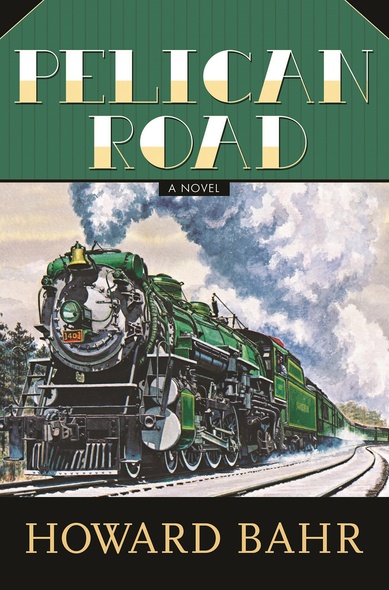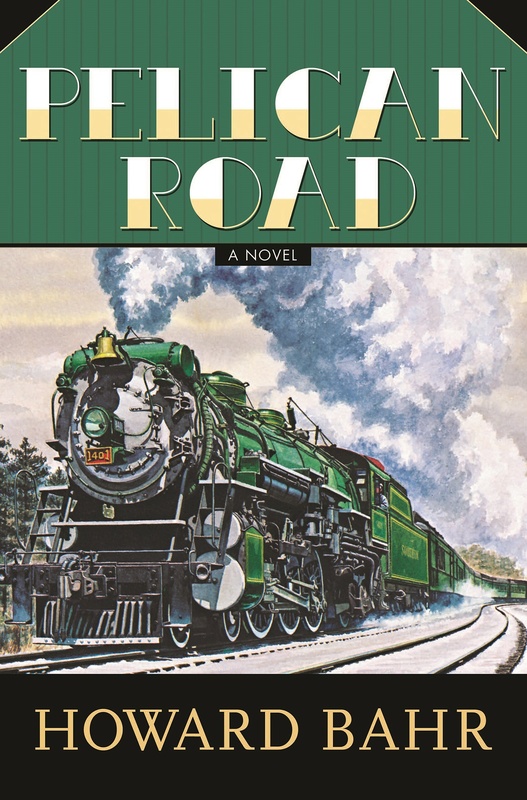Winner of the Mississippi Institute of Arts and Letters Fiction Award (2009)
Early on the morning of Christmas Eve, 1940, Artemus Kane leaves his sweetheart’s New Orleans flat to catch the northbound Silver Star, a first-class passenger train on the Southern Railway. Artemus, a brakeman, will help bring the train to Meridian, Mississippi, a 180-mile journey along what the railroad men call “Pelican Road.” Meanwhile, in the Meridian yard, conductor Frank Smith awakes in his caboose. A few hours later, Smith will take charge of a fast freight train southbound for the Crescent City.
Smith and Kane, who served together in the Marine Corps during World War I, are old comrades. Their friendship flourishes amid the community of railroad men who work along Pelican Road—a brotherhood whose lives are spent among the lights and shadows, the danger and humor and violence, and the loneliness and camaraderie of railroad work. On this Christmas Eve, however, Smith and Kane are each bound on a journey that will alter their lives forever.
Pelican Road is a novel played out against the landscape of a vanished way of life. Howard Bahr, who worked as a brakeman and yard clerk in the twilight years of old-time railroading, brings the authenticity of experience to his narrative. Pelican Road, however, seems more than a railroad adventure story. At its heart, the novel is about friendship and love, about men and women who persevere in the face of hardship and danger and who, in the end, find redemption in each other.
After penning a highly praised trio of Civil War novels—The Black Flower (1997), The Year of Jubilo (2000), and The Judas Field (2006)—Bahr turns to the 1940s and a close-knit group of railroad men. Bahr, a former railroad man himself, is intimately familiar with that world ('an alien, masculine world with a language all its own') and here deploys many lovingly detailed passages describing the mechanics and machinery. A. P. Dunn, engineer on a freight train, has been suffering from memory loss, but his crew is reluctant to confront him because of his loyal service and his generous mentoring of the younger men; meanwhile, Artemus Kane, a conductor on a deluxe passenger train who is also a World War I vet haunted by his battle experiences, wonders if he has finally met a woman he can commit to. Due to a series of miscommunications, the two trains seem to be on a collision course in spite of the crews’ long years of experience and dedication. . . . Running right underneath the suspenseful narrative is a beautifully wrought view of the world as a lonely and unforgiving place.
Howard Bahr re-creates this seminal moment in American history with prose that is vivid, unflinching, and often incantatory. . . . Bahr’s accomplishment is magnificent.
A mature work of fiction by a gifted writer affectingly eloquent and fearless of complexity and ambiguity. . . . Bahr is a writer with a fluent lyric facility, subtly ensuring that the brutality of his narrative events never becomes numbing. . . . A beautifully wrought novel that deserves a wide audience.
[Bahr] is a true poet of weather, of night, and of time. . . . Not since James Agee has someone made the southern night so alive, so intimate, so orchestral. . . . Along with the sweeping, cinematic story of rebellion, loyalty, revenge, and reawakened romance, Bahr’s evocation of place and time is the most enduring achievement of the novel.
Bahr is such an accomplished wordsmith that you will at times forget about the plot in favor of plumbing into the psyches of his two tarnished heroes. . . . a searing account of a people’s 1960s struggle for racial justice and a thought-provoking study of the psychology behind Southern racism.
Howard Bahr is a native of Meridian, Mississippi, a Vietnam veteran, a former railroader, and the author of four novels. He received his bachelor’s and master’s degrees in English from the University of Mississippi, then worked as a professor of English.





